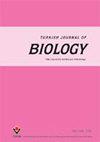应用表观遗传学基因调控工具优化CHO细胞单克隆抗体表达
IF 0.9
4区 生物学
Q3 BIOLOGY
引用次数: 3
摘要
单克隆抗体(mab)在制药生物技术中至关重要。哺乳动物细胞系是它们生产的首选材料。表观遗传基因沉默是哺乳动物表达系统的重要挑战之一。利用表观遗传基因调控工具可以提高哺乳动物细胞系的生产力。丁酸钠(NaBut)和丙戊酸(VPA)通过抑制组蛋白去乙酰化酶调节基因表达。普遍存在的染色质打开元件(UCOE)可以通过减少DNA甲基化来改善表达。本研究研究了NaBut和VPA组蛋白去乙酰化酶抑制剂(ihdac)和UCOE对单克隆抗体合成的单独和联合作用。用不含ucoe (CHO-HL)和含ucoe (CHO-UHUL)的载体生成稳定的细胞系,并在NaBut或VPA存在和不存在的情况下培养。表达分析表明,CHO-UHUL的产量比非ucoe的CHO-HL高4倍。NaBut和VPA处理后,CHO-HL和CHO-UHUL细胞的抗体产生水平分别增加了2倍和2.5倍。这些结果表明UCOE比iHDACs对抗体表达的影响更大。在含有CHO-UHUL细胞的UCOE中,iHDAC处理的抗体产量至少提高了0.5倍。因此,利用NaBut和VPA (ihdac)和UCOE可提高抗体表达,两者联合使用对抗体合成具有协同作用。关键词:单克隆抗体,仓鼠卵巢,表观遗传基因沉默,染色质打开元件,丁酸钠,丙戊酸本文章由计算机程序翻译,如有差异,请以英文原文为准。
Optimization of monoclonal antibody expression in CHOcells by employing epigenetic gene regulation tools
Monoclonal antibodies (mAbs) are crucial in pharmaceutical biotechnology. Mammalian cell lines are the most preferred for their production. One of the significant challenging issues of mammalian expression systems is epigenetic gene silencing. Employing epigenetic gene regulation tools can increase the productivity of the mammalian cell lines. Sodium butyrate (NaBut) and valproic acid (VPA) regulate gene expression by inhibiting histone deacetylase. A ubiquitous chromatin-opening element (UCOE) can improve expression by reducing DNA methylation. Here, the separate and combined effects of NaBut and VPA histone deacetylase inhibitors (iHDACs) and UCOE on mAb synthesis were studied. Stable cell lines were generated by non-UCOE (CHO-HL) and UCOE-containing vectors (CHO-UHUL) and cultured in the presence and absence of NaBut or VPA. Expression analysis showed that CHO-UHUL gave a 4-fold greater yield than non-UCOE CHO-HL. Antibody production levels of the CHO-HL and CHO-UHUL cells increased 2-fold and 2.5-fold after NaBut and VPA treatment, respectively. These results indicate that UCOE has more impact on antibody expression than iHDACs. iHDAC treatment exhibited at least a 0.5-fold higher antibody yield in UCOE containing CHO-UHUL cells. Thus utilization of NaBut and VPA (iHDACs) and UCOE resulted in antibody expression improvement, and the combined use of them had a synergistic effect on antibody synthesis.
Keywords: Monoclonal antibodies, Chinese hamster ovary, epigenetic gene silencing, chromatin-opening element, sodium butyrate, valproic acid
求助全文
通过发布文献求助,成功后即可免费获取论文全文。
去求助
来源期刊

Turkish Journal of Biology
BIOLOGY-
CiteScore
4.60
自引率
0.00%
发文量
20
审稿时长
6-12 weeks
期刊介绍:
The Turkish Journal of Biology is published electronically 6 times a year by the Scientific and Technological
Research Council of Turkey (TÜBİTAK) and accepts English-language manuscripts concerning all kinds of biological
processes including biochemistry and biosynthesis, physiology and metabolism, molecular genetics, molecular biology,
genomics, proteomics, molecular farming, biotechnology/genetic transformation, nanobiotechnology, bioinformatics
and systems biology, cell and developmental biology, stem cell biology, and reproductive biology. Contribution is open
to researchers of all nationalities.
 求助内容:
求助内容: 应助结果提醒方式:
应助结果提醒方式:


